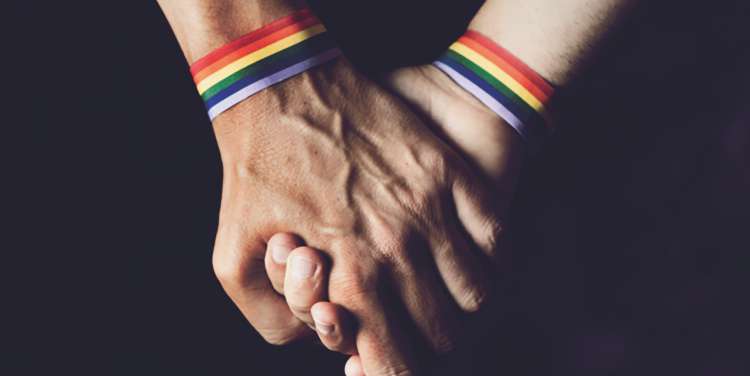To Christians who believe that Bible is the source of authority for belief and conduct, it is clear that homosexual practice is sinful. When Jesus was asked about divorce (Matthew 19:3–6), he responded by quoting from the creation account of Genesis, and in the process indicated that God’s design for a marriage is between a male and a female. Paul in his letter to the Romans (1:26–27) states that homosexual practice is unnatural. Paul means to say that sexual relation between male and female is the natural pattern, but deviation from this pattern is unnatural. There are other aspects of sexual ethics. But for this essay, the biblical lesson to bring home is that homosexual practice is sinful and marriage must be between a male and a female.
It is important to bear in mind the difference between homosexual inclination and homosexual practice. The former is to be sexually attracted towards the same sex, and this is something that many insist can be inborn, whereas the latter is to exercise free will and choose to have sexual activity with a person of the same sex. What Paul means as “unnatural” in Romans 1 would be of the kind of homosexual activity that is performed. Many Christians who are born with homosexual inclination exercise their free will and choose to remain unmarried rather than engage in sexual activity with a person of the same sex. Their being single is as easy or as difficult as that of a heterosexual—a person who is attracted to the opposite sex, who chooses celibacy. They chose to remain single because they consider homosexual activity sinful and therefore refrained themselves from living such a life of sinful relationship.
On 6th September 2018 the Supreme Court (SC) decriminalised homosexual activity. This does not mean that same-sex partner can now marry; they cannot. The judgment only implies that homosexual activity between consenting adults will no longer be a crime. Many religious-minded citizens, including Christians, find it hard to acknowledge the reasonableness of this judgment of the SC. Their apparent reasoning is that because homosexual activity is sinful or wrong, it ought to be a crime. The SC, however, has a different way of reasoning. To understand SC’s perspective, one must go deeper into the political philosophy of India.
It is understandable that many religious folks find it hard to acknowledge the wisdom of the SC in decriminalising gay sex. But upon deeper analysis, preventing religion-based beliefs and conviction from being made into a law provides a safer environment to the religious minorities.
India is a secular state. This is to imply that its Constitution is not religious based and any of its citizens will not be discriminated against based on religious adherence. The SC also notes that India is a liberal state. Again, implying that liberty is a value that must be given high regard. Thus, if two consenting adults choose to have sex in their bedroom, their privacy cannot be invaded by the law. Whether the sexual activity is male–male or female–male, if there is no infringement of liberty by either party or rather if the activity is based on mutual consent, the activity cannot be criminalised. After all there is no harm inflicted on either party in such activity. There are two clarifications that may be made here. First, adultery that does not involve the consent of the spouse is a criminal act as adultery involves violating the “contract” that has been made with the spouse. Second, harm can be interpreted to include harming the soul too. However, greed, pride, etc., can be harmful for the soul too. Yet the SC would not want to go down this path in defining harm.
It is understandable that many religious folks find it hard to acknowledge the wisdom of the SC in decriminalising gay sex. But upon deeper analysis, preventing religion-based conviction from being made into a law provides a safer environment to the religious minorities. Supposed, we were to allow religious-based conviction to be framed as a law, as it is allowed in Pakistan, then there are so many ways religious minorities will suffer. What if my liberty to consume beef is taken away and beef consumption is made a crime because majority of the people consider cow sacred? It is one thing to campaign that I avoid meat or beef; it is another thing to make its consumption a crime. The former one I can choose to ignore but the latter one I must comply with as it is a law. It is one thing to tell that homosexual practice is immoral or sin; it is another thing to make homosexual practice a crime.
Religious-based conviction can be advanced in public square; one may even evangelise and share the gospel. This is something that Christian community must continue to do as followers of Jesus Christ. However, making Bible-based conviction as a law and making non-compliance of it as a crime is something we should normally avoid seeking. Here someone may cite the case of abolition of slave trade through the work of William Wilberforce to argue for a legal code based on biblical conviction. The difference here is that slave trade does harm other people unlike gay sex which is based on mutual consent. In fact, bestiality is still a crime as the animal cannot give consent. Thus, 377 still remains; it’s just that its application is now limited to cases where there is no mutual consent.
Idol worship abounds in a society like ours. We respect their freedom to do that. However, as followers of Christ, we train our children to be firm in their faith in Jesus. Behaviour Christians consider immoral may abound, yet we must train our kids to be faithful to Jesus. If we prayerfully raise our children in the ways of the Lord, then fornication, pornography or gay sex—which the legal code does not consider as crime—need not affect our church and the family. We cannot expect the state or government to have a law that exactly reflects the religious conviction of any group, be it Hindus or Muslims or Christians. However, we have the liberty to train our family and the religious community in the ways of the Lord. The nature of liberty is such that the citizens can exercise it to choose Jesus and his ways or choose something else.





